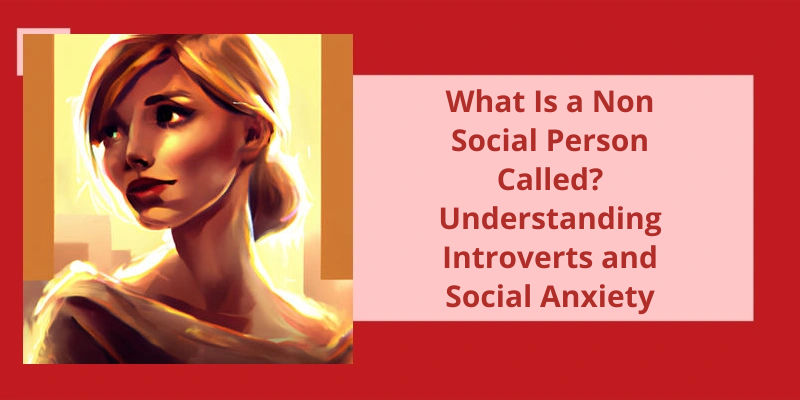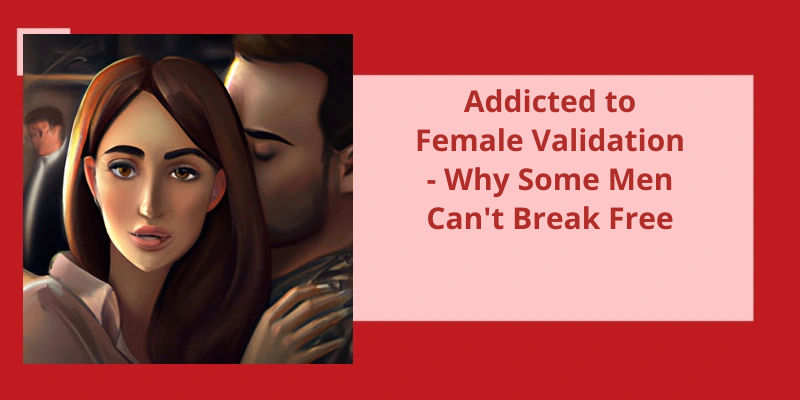Humans are social creatures by nature, seeking companionship, communication, and validation from others in their lives. However, not every individual shares the same inclination toward socializing. There are those who prefer seclusion from social interaction, exhibiting a lack of motivation or aversion to interacting with others. These individuals may be labeled as 'asocial', a term that denotes a lack of interest or participation in social activities. While often confused with 'antisocial' behavior, which is associated with opposing social norms and authority, asociality refers to a lack of motivation for socialization and doesn’t necessarily imply negativity or hostility toward society. As such, identifying and understanding asocial individuals can offer insight into the motivations and needs of those who choose to live outside of traditional societal expectations.
What Causes Someone to Be Not Social?
For some individuals, being not social may be a symptom of a mental health issue like social anxiety disorder or depression. Social anxiety disorder is characterized by a persistent fear of being judged or embarrassed in social situations, which can lead to avoidance of social interactions. Depression can also lead to social withdrawal because of a lack of motivation and feelings of helplessness that make it difficult to engage with others.
Another factor that can contribute to being not social is a persons past experiences. Negative childhood experiences, such as bullying or rejection, can create a fear of social situations that carries over into adulthood. Trauma or abuse is also a common reason why some people may choose to isolate themselves as a coping mechanism.
Some traits and personalities may make it harder for people to connect with others. Shyness or introversion are traits that can make it challenging to initiate social interactions, and those who suffer from it may experience social withdrawal because they aren’t comfortable in social situations. Autistic individuals may have difficulty with socialization due to communication and sensory processing issues.
Life events do also affect social behavior. Life transitions like the loss of a loved one or a job, can create feelings of anxiety and depression, making it difficult to socialize. Health problems, substance abuse, or financial difficulties can also contribute to social withdrawal.
Lastly, cultural or societal factors, such as stigma or discrimination, can also influence a persons decision to withdraw from social interactions, particularly in minority or marginalized groups who may experience prejudice or exclusion.
In summary, the reasons why someone may not be social varies depending on the individuals circumstance. Some factors may include underlying mental health conditions, past experiences or trauma, personal traits, life events, and cultural or societal norms. Regardless of the reason, it’s important to encourage individuals struggling with social withdrawal to speak with a mental health professional or someone they trust.
Coping Mechanisms for Individuals Who Are Not Social
- Engage in creative activities such as drawing, writing, or crafting
- Join online support groups or forums for people who share similar experiences
- Practice mindfulness and meditation to improve self-awareness and reduce stress
- Take up a solo hobby, such as hiking or photography
- Keep a journal to document thoughts and feelings
- Seek professional help from a therapist or counselor
- Find comfort in spending time with a pet
- Challenge negative self-talk and replace it with positive affirmations
- Set small goals and celebrate each accomplishment
- Develop a consistent self-care routine
Being a not social person can have many different meanings, but one extreme of this spectrum is antisocial personality disorder. This condition is characterized by a complete lack of concern for the well-being of others and a tendency to engage in harmful behavior without any remorse. It’s important to understand the complexities of this disorder and it’s impact on individuals and society as a whole.
What Does It Mean to Be a Not Social Person?
This disregard for societal norms and values can manifest in various ways, including a lack of empathy, impulsivity, and a tendency towards manipulation and deceit. Individuals with antisocial personality disorder may also exhibit a disregard for their own safety and the safety of others, as well as a disregard for the law.
It’s important to note that not all individuals who aren’t social are necessarily diagnosed with antisocial personality disorder. Some people may simply be introverted and prefer limited social interaction, while others may struggle with social anxiety or other mental health conditions. However, those who display consistent and severe disregard for social norms and the well-being of others may be a sign of a deeper underlying issue.
They may also become involved in criminal activity or substance abuse as a means of coping with their underlying issues.
Treatment for antisocial personality disorder can be difficult, as individuals with this condition may not see a need for it and may resist therapy or psychiatric intervention. However, treatment may include therapy, medication, and other interventions aimed at improving coping skills and socialization abilities.
With enough support and intervention, they may be able to improve their ability to interact positively with others and live fulfilling lives.
Coping Mechanisms for Individuals Who Struggle With Social Anxiety.
- Deep breathing exercises
- Progressive muscle relaxation
- Mindfulness meditation
- Cognitive-behavioral therapy
- Exposure therapy
- Social skills training
- Physical exercise
- Healthy diet
- Support groups
- Journaling or writing
While some may see this as abnormal behavior, it’s important to remember that everyone’s personality and behavior is different. Being less social than others is perfectly normal and shouldn’t be viewed as a negative trait. In fact, there are many benefits to enjoying time alone and focusing on self-care. So, if you’re someone who prefers to spend time alone or with a small group of close friends, don’t feel like you need to change to fit societal expectations.
Is It Normal to Not Be a Social Person?
They prefer small gatherings or one-on-one interactions. They may find large parties or crowds overwhelming or draining. And while some less-social individuals feel content with their social lives, others may feel pressure to conform to societal norms and worry that something is wrong with them.
It’s important to remember that there’s no “normal” when it comes to socialization. Just as people have different preferences when it comes to food or hobbies, they also have different comfort levels when it comes to socializing. Some individuals are simply more introverted and recharge by spending time alone, while others are extroverted and thrive on social interactions. There’s nothing inherently superior about one style over the other.
That being said, it’s still important to strike a balance that works for you. If you feel lonely or isolated, it may be worth seeking out opportunities to connect with others in ways that feel comfortable. This could involve joining a club or group centered around a shared interest, volunteering for a cause you believe in, or simply reaching out to old friends or family members. It’s possible to cultivate meaningful relationships while still honoring your individual preferences and boundaries.
It’s also worth noting that socializing can bring a host of benefits, such as reducing stress and even improving physical health. While it’s not necessary to force yourself into social situations that feel uncomfortable, it’s worth exploring ways to incorporate social connections into your life in a way that feels authentic to you. This might mean setting small goals, such as attending one social event per week, or finding an accountability partner to help encourage you along the way.
Ultimately, the most important thing is to honor your own needs and preferences when it comes to socialization. Whether youre an outgoing social butterfly or a solitary introvert, there’s no one “right” way to interact with others. Focus on building connections in a way that feels authentic to you, and remember that a healthy social life is one that brings you joy and fulfillment.
Understanding the reasons for someone’s lack of social skills can be complex. While some may associate it with a lack of motivation or disinterest, there are often deeper underlying factors that can contribute to asocial behavior. It’s important to note that being asocial is different from being antisocial, and the two shouldn’t be confused or used interchangeably. In the following sections, we’ll explore the topic of social skills in more detail and provide insights into how to improve them.
What Do You Call Someone With No Social Skills?
Someone who lacks social skills is often referred to as asocial, but it’s important to note that this term isn’t interchangeable with anti-social behavior. Asociality simply refers to a lack of interest in socializing or difficulty navigating social situations. This can be caused by a range of factors, including shyness, anxiety, or a neurodivergent condition like autism.
While some people may view asociality as a negative trait, it’s important to recognize that not everyone feels the same level of comfort when socializing. Some individuals simply feel more at ease in their own company or in smaller, more intimate social settings. This doesn’t necessarily mean they don’t value relationships or appreciate social connections – they simply prefer to interact in a different way.
It’s also worth noting that asociality isn’t always a permanent state. Many people who struggle with socializing may benefit from therapy, social skills training, or other forms of support. With the right interventions, it’s possible to develop stronger social skills and find greater comfort in social situations.
For those who do identify as asocial, it can be helpful to find online communities or other spaces where they can connect with like-minded individuals without the pressure of face-to-face interaction.
In general, it’s important to approach asociality with empathy and understanding rather than judgment or stigma. By recognizing and respecting different social styles, we can create a more inclusive and accepting society for all.
Conclusion
In conclusion, the term 'non social person' can refer to individuals who exhibit asociality, which is characterized by a lack of desire or motivation to engage in social interaction or preference for solitary activities. It’s important to recognize that asociality may stem from limited opportunities for social interaction and shouldn’t be pathologized without first considering individual circumstances. As our understanding of human behavior continues to evolve, it’s important to avoid simplistic labels and instead strive for a nuanced understanding of the range of human experience.






